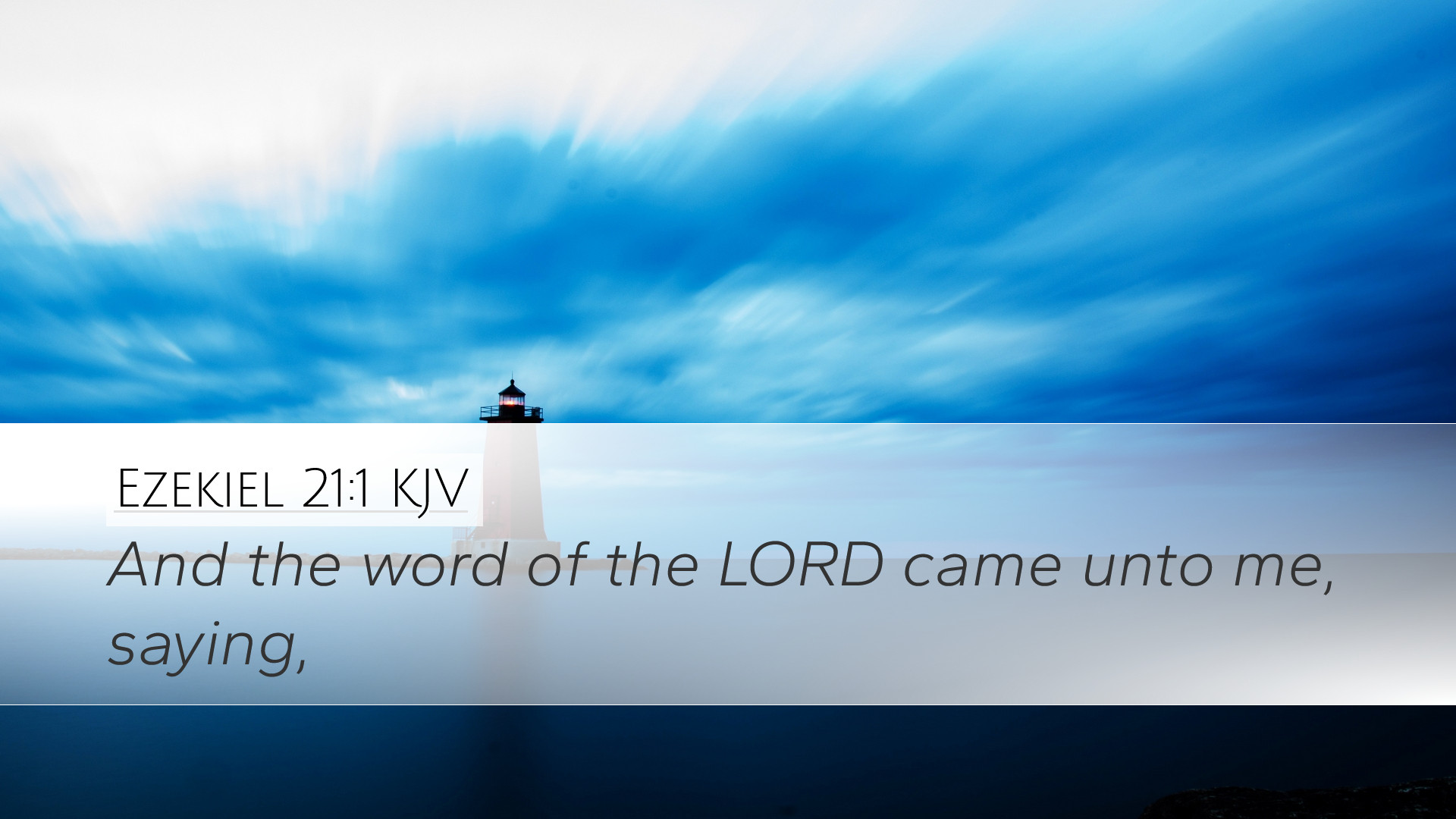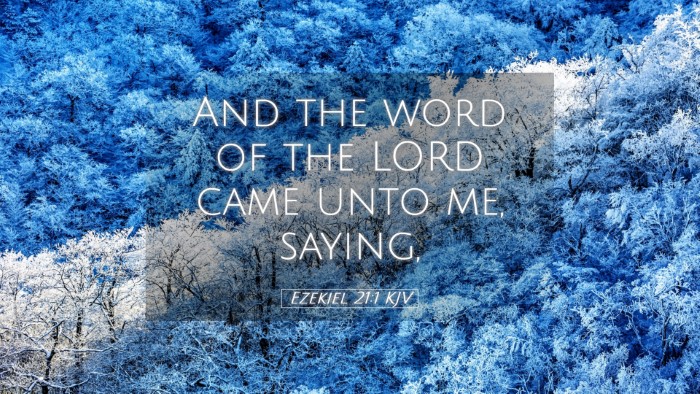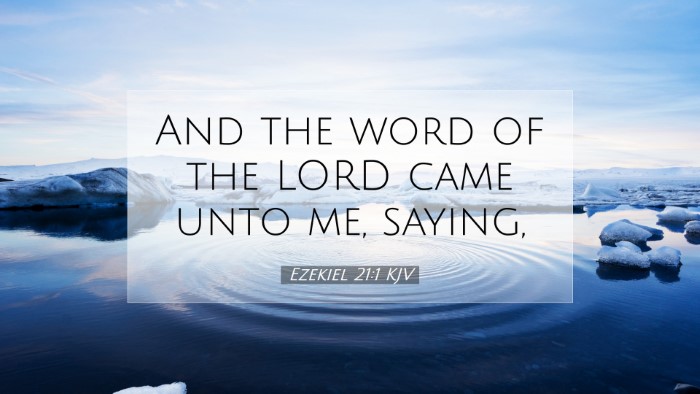Ezekiel 21:1 - Commentary Overview
Verse Context: Ezekiel 21:1 is situated within a prophetic framework, where the prophet Ezekiel is receiving divine messages regarding Israel's impending judgment. In this chapter, the focus shifts to the nation's sinfulness and the consequences of their rebellion against God.
Meaning of the Verse
Ezekiel 21:1 reads: "And the word of the Lord came unto me, saying." This introduction emphasizes the authority and urgency of God's message through Ezekiel. The phrase reveals the direct communication between God and the prophet, underscoring the divine origins of the prophecy to follow.
Historical Context
The backdrop of Ezekiel’s ministry includes the Babylonian exile and the impending destruction of Jerusalem. The Israelites were in a state of spiritual decline, marked by idolatry and disobedience to the covenant established with God.
- Ezekiel's Role: As a prophet in Babylon, Ezekiel seeks to address the people’s despair and confusion regarding their exile and suspension of worship.
- Judgment Themes: The prophetic announcements in this chapter relate to both the historical consequences of national sin and God’s ultimate sovereignty over nations.
Insights from Public Domain Commentaries
The commentaries by Matthew Henry, Albert Barnes, and Adam Clarke provide valuable insights into the theological and moral implications of this verse.
Matthew Henry's Commentary
Henry emphasizes the gravity of God’s judgment. He notes that the prophetic voice is not only an announcement of disaster but also an invitation to repentance. The phrase "the word of the Lord" suggests the seriousness of what is about to be conveyed — a call to accountability in the face of Israel's transgressions.
Key Takeaways:
- God’s word serves as a warning beacon for His people.
- Henry interprets the announcement as a precursor to divine intervention in human history.
Albert Barnes' Commentary
Barnes points out that this declaration signifies an impending crisis. He discusses the role of prophecy in declaring God’s judgment, expressing that it serves to clarify God’s intentions and reveal the consequences of sin. Barnes highlights that this verse sets the stage for the unfolding events of judgment on Jerusalem.
- Judgment and Hope: Even amidst the pronouncement of judgment, the possibility of hope through repentance exists.
- Divine Sovereignty: God’s power to control nations and their fates is paramount.
Adam Clarke's Commentary
Clarke elaborates on the significance of divine revelation in this context. He underscores the importance of listening to God's voice amidst the turmoil faced by the Israelites. Clarke posits that this direct communication serves not only as a means of judging wrongdoing but also as a reminder of God’s constant engagement with His people.
Insights Offered:
- God communicates in crisis; this emphasizes His continual concern for humanity.
- Clarke encourages readers to recognize God’s intention to guide and correct through His words.
Theological Implications
The implications of Ezekiel 21:1 extend into several theological areas crucial for pastors and scholars.
- God’s Omniscience: The verse showcases the certainty of God’s knowledge regarding human actions and the will to judge accordingly.
- Prophetic Authority: The prophetic declaration offers insights into the importance of listening to God’s messages, particularly through His appointed messengers.
- Judgment and Mercy: The context reminds us that judgment is often intertwined with opportunities for repentance and restoration.
Application for Today
As contemporary believers and leaders examine Ezekiel 21:1, several applications emerge:
- Awareness of Divine Communication: Emphasize the importance of discerning God's voice in our lives and communities amidst the distractions of modernity.
- Call to Repentance: For leaders in the church, there is a continuous call to lead congregations toward repentance and renewed faithfulness to God’s Word.
- God's Sovereignty: Acknowledge that God remains sovereign over all nations and that His plans unfold according to divine wisdom.
Conclusion
Ezekiel 21:1 serves as a profound reminder of God's active engagement with humanity and His ultimate authority to direct history based on human choices. As pastors, theologians, and scholars study this verse, they are called to dig deeper into the messages of repentance, divine justice, and the necessity of staying attuned to God's proclamations.


